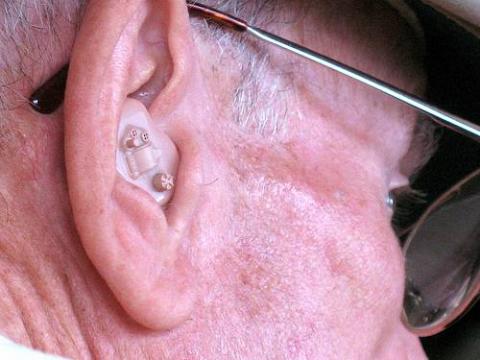Reactions: pre-publication claims part of dementia cases are caused by herpes-like viruses
An international team of scientists, led by Stanford University (United States), has designed a study to analyse the relationship between herpes zoster virus infections and the development of dementia. To do so, they took advantage of the introduction of the Zostavax vaccine against this virus in 2013 in Wales (UK), which people over the age of 80 could not receive. After reviewing data from people around this age over the following seven years, they concluded that the vaccine reduced the relative risk of dementia by 20%. According to the authors, their study, which is in prepublication form and has not been peer-reviewed, "leads to the conclusion that shingles vaccination is most likely an effective way to prevent or delay the onset of dementia".

Raquel Sánchez - preprint demencia EN
Raquel Sánchez-Valle
Head of the Neurology Department at Hospital Clínic de Barcelona and secretary of the Spanish Society of Neurology's Study Group on Behaviour and Dementia
This is an unrevised pre-publication. I hope that the revision process will correct aspects such as that:
- Dementias have different aetiologies: talking about a virus causing any one of them already indicates that it is not causal.
- Seven years is a ridiculous period to date the cause of Alzheimer's disease, for example, which starts about 20 years earlier.
- They compare the seven-year risk of subjects around 80 years of age at the time of vaccination, of whom not all eligible subjects are vaccinated, but only 40 %. At those ages, 40% is probably a biased number. They say they do not compare those who were vaccinated and those who were not: they should, to assess whether there is a bias.
Honestly, I don't think this pre-publication deserves much attention. We will see if it is published and how the content appears in its final version. From what I have read, I don't believe it.
Alberto Ascherio - preprint demencia
Alberto Ascherio
Professor of Epidemiology and Nutrition at the TH Chan School of Public Health, Harvard University and Professor of Medicine at Harvard Medical School
It is a good quality study. It provides stronger evidence that Zostavax, a herpes zoster vaccine, reduces the risk of dementia. The study, however, didn’t prove that the effect of the vaccine is mediate by its effect on the herpes zoster virus.
Further, Zostavax is being replaced by a newer vaccine (Shingrix). Shingrix is more potent than Zostavax against shingles, so we can hope that it is at least as effective as Zostavax to prevent dementia, but we do not really know, because none of the participants in the study was administered Shingrix.
The study is rigorous, and I believe its main results are valid, but chance remains a possible explanation. The p-value, which is a measure of how frequently results as strong as those reported could occur by chance alone, was in a range traditionally described as “significant”, but not low enough to confidently exclude chance as a possible explanation.
Funk - Herpes (EN)
Kristen Funk
Researcher in neuroinflammation of neuroinfectious and neurodegenerative diseases at the University of North Carolina (USA)
This was an interesting study that used a unique approach to study the effect of the shingles vaccine in preventing a new diagnosis of Alzheimer's disease. They took advantage of the specific birth date eligibility of the shingles vaccine to the elderly population of Wales and used a regression discontinuity analysis to compare the prevalence of dementia in individuals older versus younger than that specific cutoff. This is distinct from many other studies that compare individuals who were eligible for the vaccine and either received or did not receive the vaccine, the interpretation of which can be complicated by other factors that may affect the demographics of the population that receive the vaccine versus those that do not.
There are a few important limitations to this study: First, the diagnosis of Alzheimer's dementia versus other dementias was not well defined, so whether this effect is specific to Alzheimer's disease will need further analysis. Perhaps a more important limitation is that the study really focused on individuals who were 79 to 80 years old, which is a relatively old demographic for Alzheimer's disease studies, especially for preventing new diagnoses.



